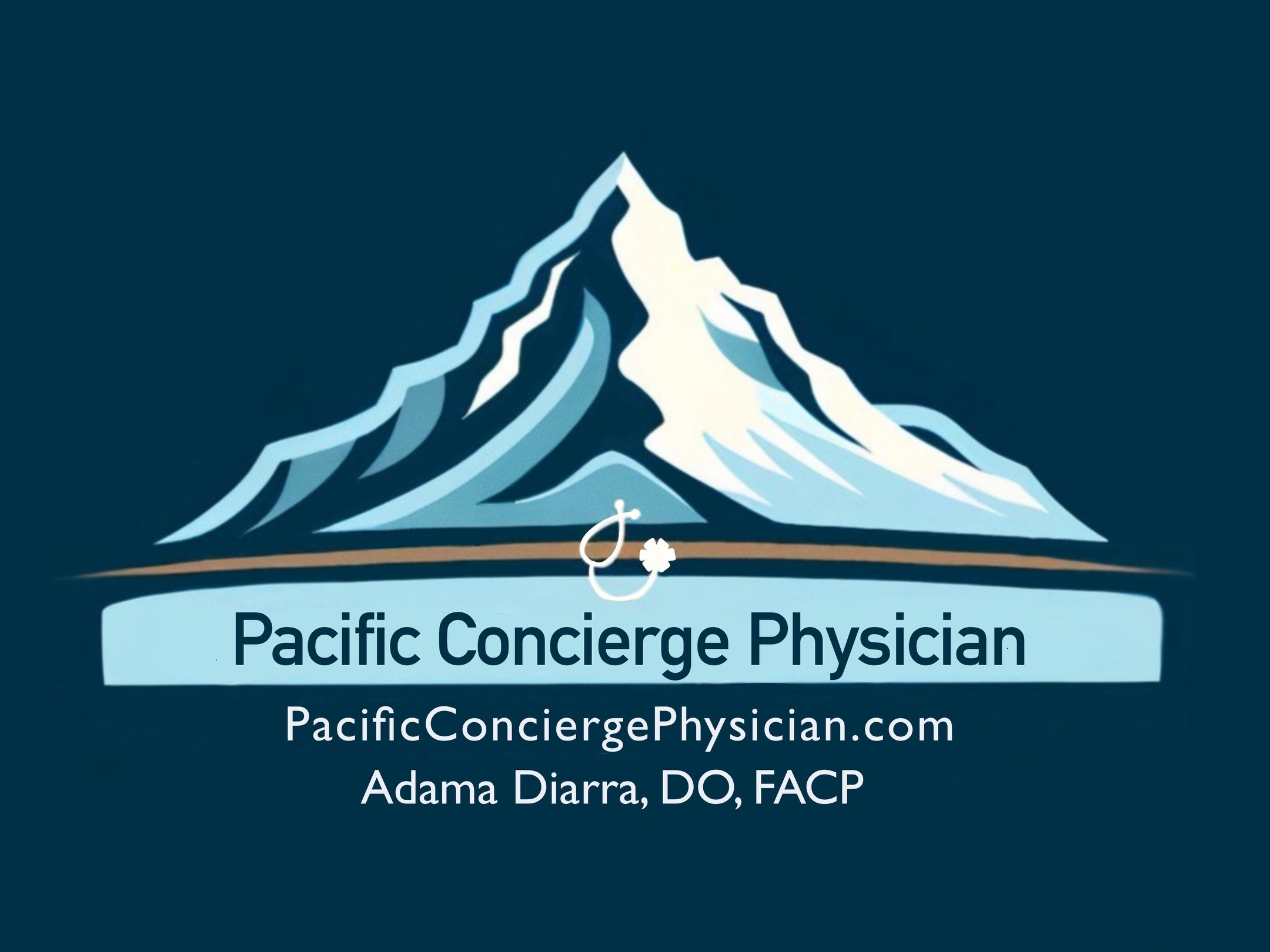
Why Having a Primary Care Physician May Literally Add Days to Your Life
Excerpt
If you’ve been following this longevity journey with me, you know we spend a lot of time talking about sleep, nutrition, strength training, metabolic health, stress reduction—the core pillars that shape how we age.
But today, I want to focus on something far less glamorous, yet surprisingly powerful:
Having a primary care doctor.

Living Longer, Living Unequally: The Socioeconomic Implications of Longevity
"Living Longer, Living Unequally" — Who really benefits from modern longevity?
As life expectancy rises, so do the cracks in our healthcare and retirement systems. I see it daily: aging well is often a luxury, not a right. Without addressing the deep inequities in how we age, longevity could become yet another marker of privilege.
🧠💰📉 Let’s talk about what needs to change.
#Longevity #HealthEquity #PrimaryCare #AgingWell #ConciergeMedicine #SocialDeterminants #HealthcareReform

Longevity Supplements Part 2: Are Supplements the Secret to Longevity—or Just Expensive Placebos?
Are Supplements the Secret to Longevity—or Just Expensive Placebos?
When I moved from the hospital to the outpatient clinic, I noticed a shift. Patients weren’t just asking about blood pressure or cholesterol anymore—they wanted to know about supplements. Lots of supplements. Some brought in detailed lists. Others sent emails full of questions. Many were taking handfuls of capsules and powders every day, sometimes long before filling their first prescription.
Instead of waving this off, I leaned in. I started tracking the supplements patients asked about most, and I dug deep into the scientific research. What I found was fascinating—and often surprising.
Some supplements, like CoQ10 with selenium, show promising results in long-term studies. Others, like omega-3 fatty acids, offer more modest benefits. And many, including popular choices like multivitamins, may not do much at all for longevity when the science is carefully reviewed.
One thing became clear: when it comes to aging well and living longer, supplements can play a role, but they are not a substitute for the fundamentals. Eating a fresh, balanced diet, staying physically active, and avoiding harmful habits matter far more. Take fish oil, for example. While fish oil supplements have produced mixed results, populations that actually eat fish regularly tend to live longer and healthier lives.
So before reaching for the latest trending pill or powder, it’s worth asking: what does the evidence really say? And could your time, energy, and money be better spent focusing on time-tested lifestyle habits?
In this newsletter, I’ll walk you through what the research really tells us about popular supplements for longevity—what shows promise, what remains uncertain, and why working closely with your doctor (instead of just asking Google) is the wisest path forward.

Longevity: Exploring the Science of a Longer, Healthier Life: Exploring Clinically Proven Medications for Human Longevity
What if extending the healthy years of your life could be supported by medications already sitting in the pharmacy? While no prescription drug has yet been FDA-approved specifically to delay aging or extend human lifespan, some medications—originally developed for diabetes, heart failure, immunosuppression, and cancer—are drawing attention for their potential in promoting healthspan and even lifespan in certain populations.
In this chapter, we dive into some of the most clinically studied and discussed medications associated with longevity: Metformin, Rapamycin, GLP-1 Receptor Agonists, and Senolytics. Each is explored through the lens of mechanism of action, cost, pros and cons, and existing clinical evidence.
This newsletter offers readers a science-based, cautious, but forward-looking perspective on the future of pharmacologic longevity. Whether you're a healthcare provider, wellness enthusiast, or simply curious about the evolving landscape of anti-aging medicine, you'll find practical insights and a foundation for informed discussions with your medical team.
Adama Diarra, DO, FACP & Team
Pacific Concierge Physician
7001 SW Hampton Street Tigard/Portland, OR 97223
Phone: 503-664-1207

Longevity: Exploring the Science of a Longer, Healthier Life
In 2023, the U.S. Surgeon General declared loneliness a public health epidemic, highlighting its far-reaching psychological and physiological impacts. This chapter explores the complexities of loneliness, from its misunderstood roots in social disconnection to its detrimental health effects, which rival the risks posed by chronic diseases such as smoking and obesity. Research reveals that loneliness can increase inflammation, weaken immunity, and heighten stress, making it as lethal as major health conditions.
The chapter outlines key biological and behavioral pathways by which loneliness impacts health and emphasizes the societal costs, including economic burdens due to increased healthcare usage and workplace absenteeism. Addressing this epidemic requires both individual and community-level interventions. Practical strategies, such as enhancing small daily interactions and employing positive body language, can foster meaningful connections and mitigate feelings of isolation. Community programs and technology-driven solutions, like video calls, also play pivotal roles in bridging social gaps.
Personal anecdotes and case studies, particularly observations of elderly patients during the COVID-19 pandemic, underscore the devastating effects of isolation and the importance of healthcare providers in offering human connection. Ultimately, combating loneliness necessitates a holistic approach involving individual efforts, community initiatives, and policy changes to foster lasting connections and improve overall well-being.

Longevity: Exploring the Science of a Longer, Healthier Life
In this chapter, we delve into the critical health risks posed by commonly encountered substances and behaviors. This chapter explores the severe impacts of smoking, vaping, excessive sugar and salt consumption, and the dangers of prescription opioids and illicit drugs. Additionally, it covers the often-overlooked threats from microplastics, forever chemicals, and the public health challenges of gun violence and alcohol consumption. Armed with scholarly evidence, the chapter aims to educate and empower readers to make healthier choices that extend life expectancy and enhance quality of life, emphasizing that prevention is paramount in the pursuit of well-being.

Longevity: Exploring the Science of a Longer, Healthier Life
This chapter explores the importance of maintaining a healthy weight for overall well-being and chronic disease prevention. It defines weight categories using tools like BMI and advanced methods such as DEXA scans, while addressing obesity’s risks, including heart disease, diabetes, cancer, sleep apnea, and dementia. The chapter also highlights the dangers of being underweight. Practical, evidence-based strategies for weight management empower readers to achieve a balanced, healthier lifestyle and reduce their risk of chronic conditions.
Disclaimer:
The information provided in this newsletter is for educational and informational purposes only and is not medical advice. It is not intended to diagnose, treat, cure, or prevent any medical condition and should not be used as a substitute for personalized medical care from a licensed physician or qualified healthcare professional.
Readers are strongly encouraged to consult their own healthcare providers for any questions or concerns regarding their health or medical conditions. Reliance on the information provided in this newsletter is solely at your own risk.
Dr. Diarra and Pacific Concierge Physician assume no responsibility or liability for any outcomes resulting from the use of this information. Receipt of this newsletter does not establish a physician-patient relationship.
If you are experiencing a medical emergency, please contact emergency services or seek care at the nearest healthcare facility immediately.


